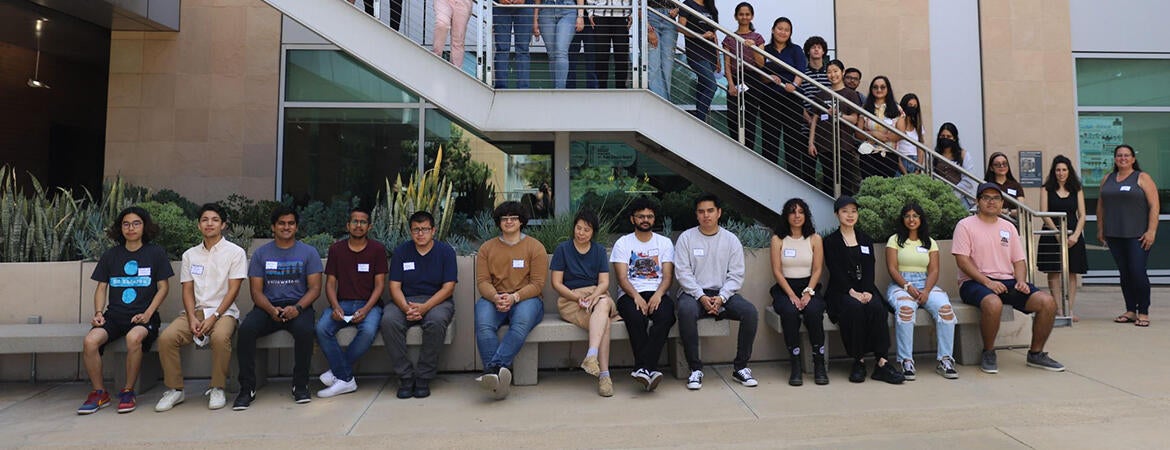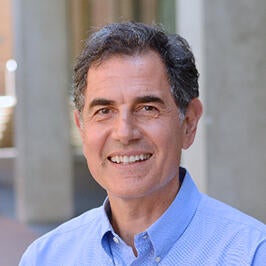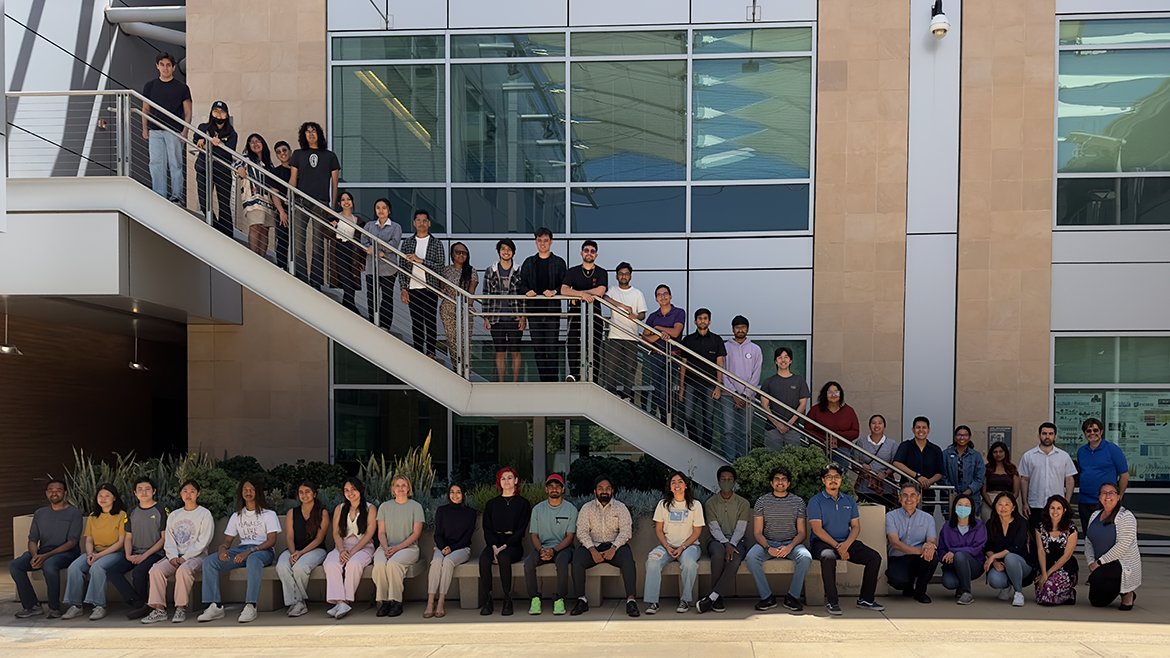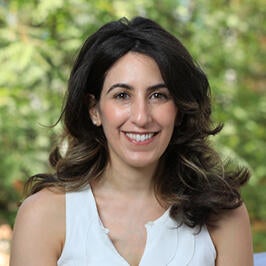
In a world that generates mountains of data, the innovators and leaders are the ones who have learned how to turn that raw information into action. Five years ago, UCR’s Marlan and Rosemary Bourns College of Engineering (BCOE) and College of Natural and Agricultural Sciences (CNAS) answered the call by launching a unique undergraduate data science program that prepares diverse students to become experts in collecting and interpreting data. The program delivers interdisciplinary knowledge and training that cultivates a new generation of data scientists whose insights can help businesses grow, advance emerging technologies, and tackle global challenges.
The data science major program is also designed to draw students who aren’t commonly represented in science, technology, engineering, and mathematics (STEM) fields, such as women.
Since its launch, the program has been recognized by computer science educators and secured various grants, allowing BCOE, in partnership with other institutions, to expand and enrich opportunities for students. This includes a summer fellowship that enables a wide array of students to work on real-world industry projects and receive professional training.
“A mastery of data science is a powerful, high-demand skill that will only continue to grow in importance in the years to come rapidly,” said Vassilis Tsotras, a Department of Computer Science and Engineering professor who led the interdisciplinary committee that developed the program and serves as a co-director. “Our program and offerings are uniquely positioned to prepare more diverse undergraduates for exciting and transformative careers.”
*********
Data science is an interdisciplinary field that typically includes computer science, statistics, and mathematics. It also applies techniques and principles from machine learning (ML), artificial intelligence (AI), and big data analysis. Data science careers include data scientist, data engineer, data analyst, ML engineer, AI engineer, business intelligence analyst, healthcare data analyst, and marketing analyst.
The importance of data in today’s world covers all sectors: healthcare, education, government, business, and far more. Businesses rely on data to improve customer experiences and improve their products and services. Government agencies need data, for example, for city planning and national defense. And engineers and computer scientists rely on data to remain at the forefront of breakthroughs and innovations.
These crucial insights are what drive the demand for skilled, talented data scientists across all sectors.
Employment in the data science field is projected to grow by 36 percent by 2033, much faster than the average for all occupations, according to the U.S. Bureau of Labor Statistics.
“Data science is the study of data so that we can extract meaningful insights that can be used to guide decision making and strategic planning,” said Mariam Salloum, a computer science and engineering associate teaching professor who serves as the Data Science program’s faculty advisor. Her research areas include data integration, big data visualization, machine learning, database management, and artificial intelligence.
*********
The data science major was developed through a collaboration between BCOE’s Department of Computer Science and Engineering and the CNAS Department of Statistics. This partnership provides students the opportunity to opt for a data science degree from the college of their choice. Another distinguishing feature of the intercollegiate program is that students complete a sequence of courses from other departments — such as electrical engineering, business, earth sciences, economics, and bioinformatics — so they learn how to apply data science principles to these fields.
“Data science skills are valuable across various multiple domains and the demand for data science professionals will only continue to grow,” said Jun Li, a Department of Statistics professor and a program co-director. “Whether you are passionate about numbers, technology, or problem-solving, a data science degree opens up many exciting career possibilities.”
The program’s interdisciplinary nature will also create opportunities to serve as a pathway for attracting more women to computing. Students are tasked with completing custom-designed course sequences that are tied to other departments and fields, such as business or economics, which typically draw more women students.
“Blending data science with these core applications will help bring these female populations into a broad realm of computing,” according to a paper about the program (“Developing an Interdisciplinary Data Science Program”) co-authored by Salloum, Tsotras, and several BCOE and CNAS statistics faculty members.
According to some studies, only about 15 to 20 percent of data science professionals in the United States are women.
The BCOE and CNAS data science program is also uniquely positioned to more effectively prepare students by providing a solid foundation to undergraduates who may be new to the field.
“While many institutions offer Master of Science in data science programs, they commonly attract professionals from non-data science backgrounds,” according to the paper. “This may be a disadvantage as a solid foundation in math and statistics as well as computer science is fundamental for success in such programs.”
This paper received an award in the curriculum development track at the Special Interest Group on Computer Science Education (SIGCSE) 2021 conference.
*********
In addition to launching an undergraduate program, this growth in data science education also led to the creation of a data science minor at UCR, several certificate programs at local community colleges, and a data science minor at California State University, San Bernardino (CSUSB).
These offerings featured shared courses to make the transitions seamless for community college students transferring to UCR, making the university “the focus for data science education in the Inland Empire,” Tsotras said.
One of the signature components of the initiative is the Data Science Fellowship. For this fellowship, students are hosted over the summer for eight weeks. During that time, they work on real-world projects that are provided by fellowship partners, which include nonprofit organizations and government and state agencies.
From summer 2022 to summer 2024, the fellowship hosted nearly 120 fellows, nearly 100 students from UCR and CSUSB; and 20 from community colleges.
*********
Such efforts have been supported by several significant grants from federal and state agencies.
BCOE and CNAS faculty, along with several partner institutions, received a National Science Foundation (NSF) Harnessing Data Revolution Data Science Corps grant. In collaboration with CSUSB, San Bernardino Valley College, and the Riverside Community College District’s three community colleges, the grant funding enables students from these institutions to participate in real-world projects provided by industry partners. It also supports program fellows to receive professional training that includes resume building and oral and written communication. BCOE’s portion of the grant totalled $1.2 million.
The development of the data science major was also supported by a $400,000 gift from the Center for Advancing Women in Technology, a Silicon Valley-based nonprofit that works to create more pathways to educational and career opportunities for women in technology-based fields.
An eight-week summer bootcamp for undergraduates is supported by a roughly $400,000 NSF grant. The grant was secured by Jia Chen, a Department of Electrical and Computer Engineering assistant teaching professor, and Yingzhuo “Joyce” Fu, a Department of Statistics assistant teaching professor, and intended to broaden and diversify the reach of data science research and practices.
Salloum and Analisa Flores, a statistics department assistant professor of teaching, received a California Learning Lab Grand Challenge: Building Critical Mass for Data Science grant totaling about $1.27 million. This grant is intended to strengthen data science education by supporting the development of interdisciplinary courses and help community college students seeking to major or minor in data science transition to four-year institutions.
*********
Signs of the program’s successes can also be seen among its graduates.
For the 2023-2024 academic year, 30 BCOE students graduated with a bachelor’s degree in data science, with eight of the graduates, nearly 30 percent, identified as women. The next highest number of graduates were from the computer engineering program, with a total of 42 graduates. This was a greater number of data science graduates than those from BCOE’s environmental engineering (23) and materials science and engineering (21) programs.
For the 2024-2025 academic year, 22 BCOE students graduated with data science degrees with 5 of the graduates identified as women. More than 122 BCOE students — 34 of them women — are currently enrolled in the program.
The Accreditation Board for Engineering and Technology (ABET) recently approved accreditation to the program.
“By creating a data science undergraduate degree we aim to educate the future data scientists and leaders across many fields and disciplines,” Salloum said. “We do this by building knowledge bottom-up, covering both essential knowledge from computer science in managing data and statistics in analyzing data, and integrating this knowledge with applications to other domains and to real-life problems.”
Header Image: Students who participated in the summer 2022 Data Science Fellowship post for a photo in Winston Chung Hall's courtyard.


